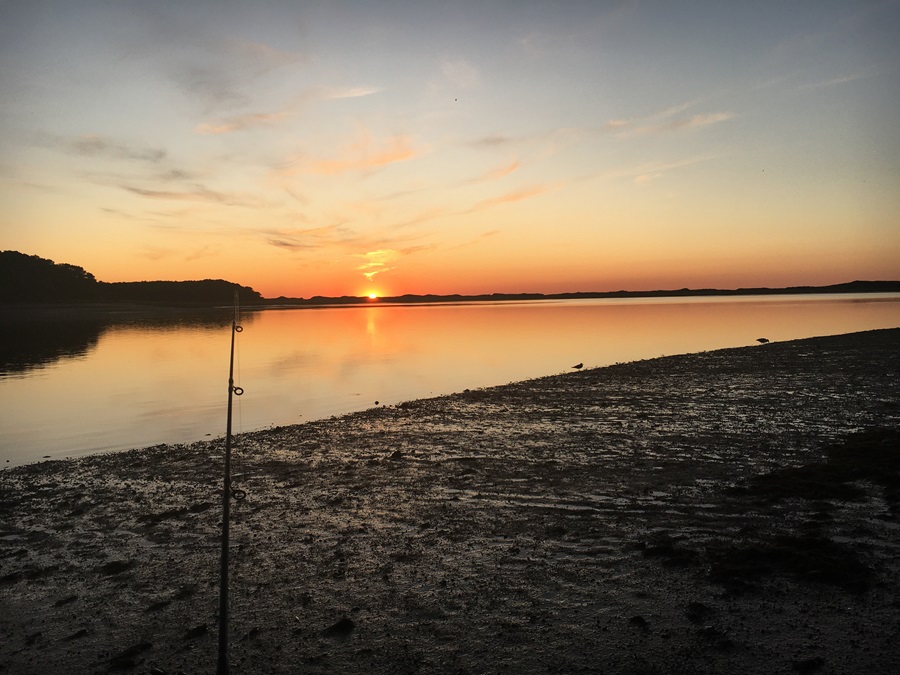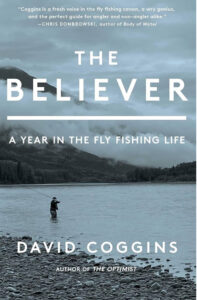A good friend of mine is convinced that humankind is composed of three distinct personalities: farmers, explorers, and seekers.
According to her theory, exploration is part of each one’s purpose, but it’s different for each type. A seeker is always exploring, but upon reaching a distant horizon is compelled to set out for the next one. An explorer is equally motivated to seek but wants just as strongly to linger and learn everything there is to know about a new discovery. Farmers have little or no desire to seek but are instead content to explore and understand every nook and cranny of their home surroundings.
Her theory conflicts with my favorite fishing guide’s imperative: “Never leave fish to find fish.” It’s a rule that’s tested at this time of year, as ocean gamefish gather for their annual pilgrimages south.

As in the spring, it is almost impossible to predict where and when the fish will make their appearances. Sometimes they’ll stick close to the shore and sometimes they’ll keep to the deeps, as they did last fall. Sometimes they’ll gather in Cape Cod Bay, making their way south through the Cape Cod Canal. Other times they’ll populate the ocean beaches, offering the best surf fishing of the year. Or I’ll find the best fishing is in the tidal creeks, bays, and harbors.
This unpredictability can drive fishermen crazy. Some of my friends fly endlessly from one end of the Cape to the other, visiting numerous beaches day and night, pursuing every report or rumor of fish, while others, and I’m among them, prefer to stalk my usual haunts. Are the runabouts seekers? Am I a farmer? Which kind of fisherman is more likely to find success?
Fisherman and writer David Coggins takes up these questions in The Believer (Scribner, April 2024), a book about flyfishing. Firmly ensconced in middle age, Coggins decides to take an entire year off to visit all the fishing spots he’s dreamed of. He takes us to windswept Patagonia, home to giant sea run brown trout, and to Norway, home of the largest Atlantic salmon in the world. The reader also visits the Spanish Pyrenees, whose tiny trout are perhaps the hardest fish to catch on a fly. He fishes hard with mixed results and writes in a way that reveals the compulsion, the emotion, and the nuanced art of flyfishing. He is also successful at capturing the soul of the places he visits and the people who, equally obsessed, offer him the benefit of their experience and knowledge.

The places Coggins visits on his romantic fishing odyssey are a feast for the imagination. But he is an honest reporter as well as a compelling writer. He fishes in beautiful places and meets fascinating characters on his journey, but to me the most important takeaway from the book is this: success isn’t determined by where someone fishes but by how quickly a fisherman can adapt to new challenges — like the nearly imperceptible take on a Scandinavian salmon river and lightning-fast hits on a Spanish trout stream. In the end, he finds himself looking forward to returning to his favorite haunts in upstate New York.
I’ve made a dozen trips to the South Island of New Zealand, which might mark me as a seeker. But the fact that I return each time to fish the same Kiwi rivers clearly means I’m an explorer.
Whether chasing fish is more productive than sticking to time-tested spots is a tossup in my mind, and it may be trivial in the scheme of things. Coggins ends his book fishing on a drab late fall day on one of his favorite New York streams. He catches a small trout, likely the last of the season, and finds himself filled with unexpected joy.
What is important, I think he’s telling us, is that fall comes before winter and the long months we spend remembering how well we fared in the final fish run of the season. Looking back over all my autumns past, it’s not the fishing I remember the most. The memories I treasure are not the fish I caught but the glowing sunsets over the Great Island Gut, and the crisp, northerly breezes pushing the blues and stripers southward, and the last hordes of frenetic terns, whose voices I won’t hear again until spring.



